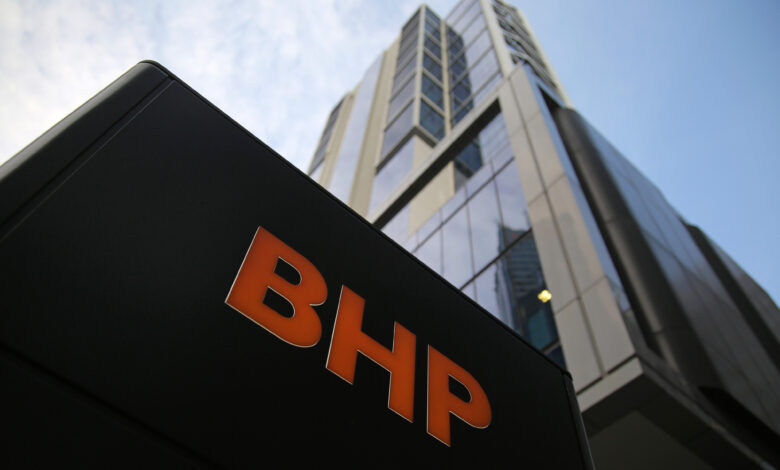China could hinder BHP’s bid to become copper’s top producer

BHP Group’s US$39-billion bid to create a global copper giant risks irking its biggest customer China, where authorities have a history of intervening to stymie or water down international mergers.
A takeover of Anglo American would catapult BHP into the top spot for copper producers, with 10 per cent or more of the world’s output. That could be a red flag for Beijing, which has long bemoaned China’s weak purchasing power against the miners that dominate trade in raw materials.
“This may invite close scrutiny from a competition perspective, specifically China’s smelting industry,” Bloomberg Intelligence analysts Grant Sporre and Alon Olsha wrote in a note. The deal comes just as Chinese copper processors are struggling to turn a profit on supplies from miners such as BHP.
China’s State Administration For Market Regulation did not immediately respond to a faxed request for comment.
The potential for Chinese involvement, perhaps by forcing asset sales in exchange for approval, is among a swathe of challenges that BHP chief executive officer Mike Henry faces in pulling off an ambitious but complex deal. Foremost, of course, is Anglo’s rejection of the bid, which it said significantly undervalues the company.
In 2013, Chinese regulators ordered Glencore to offload a major new copper project in Peru to get approval for its US$30 billion takeover of Xstrata. Before that, Beijing helped frustrate BHP’s mega-bid to buy rival Rio Tinto, a US$147 billion deal that ultimately collapsed.
GET BT IN YOUR INBOX DAILY

Start and end each day with the latest news stories and analyses delivered straight to your inbox.
The Glencore-Xstrata case offers a precedent, according to Ying Song, partner at Anjie Broad Law Firm who has advised international clients in cases involving China’s antitrust authorities.
“For copper production, the Chinese market relies on global supply to a great extent, so my preliminary impression is that this case would be scrutinised under what’s called the normal procedure,” Song said.
The State Administration for Market Regulation, which oversees competition cases, would seek opinion from industry regulators such as the Ministry of Industry and Information Technology, as well as experts, downstream consumers and industry bodies such as the China Nonferrous Metals Association.
Copper’s applications in advanced manufacturing and items crucial to the energy transition, such as solar panels and batteries, are likely to sharpen Beijing’s interest in the acquisition, given China’s dominance of the world’s clean energy and electric vehicle sectors.
Other aspects may draw less attention. Although a combined BHP-Anglo steelmaking coal business could account for as much as 19 per cent of all seaborne shipments – most of which end up in China – that’s still less than BHP’s share in 2022, according to Bloomberg Intelligence. BLOOMBERG


 Offers free spin
Offers free spin